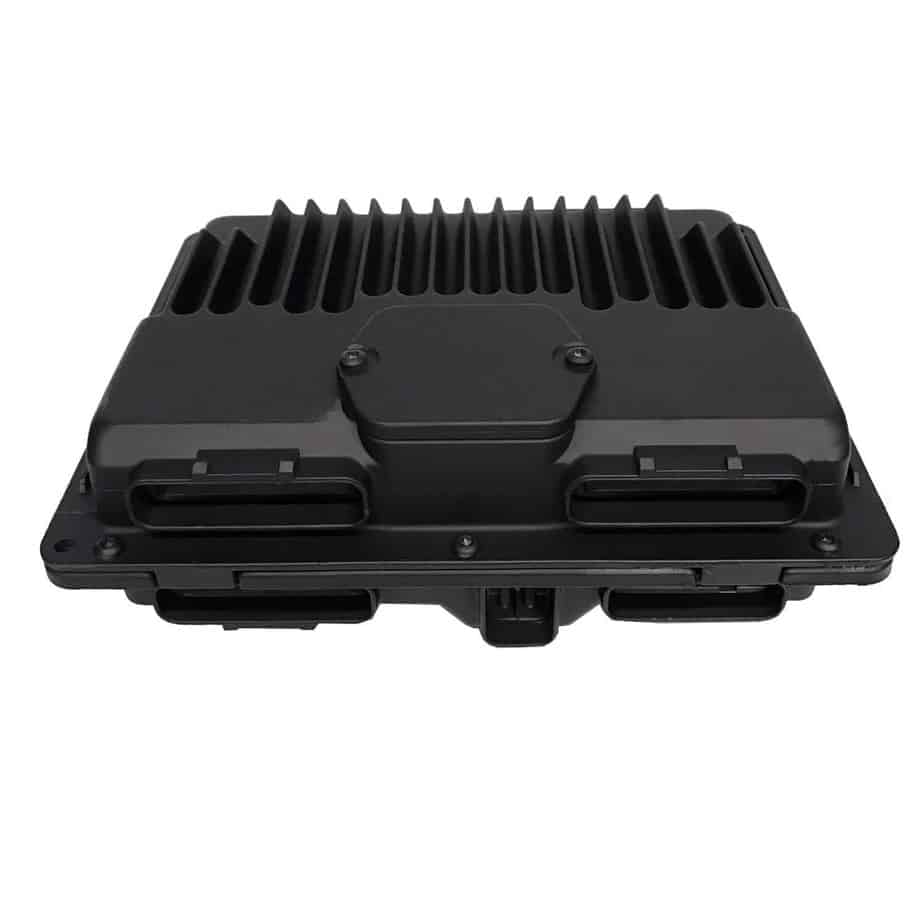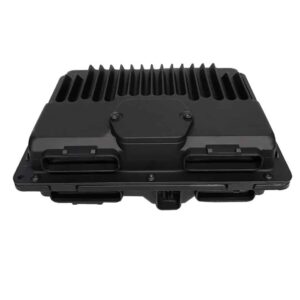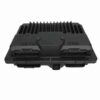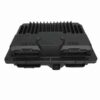If you’re wrestling with persistent engine problems in your 1998-1999 GMC 3500 Pickup, you know the frustration. Unexplained stalling, poor fuel mileage, a stubborn check engine light, or harsh shifting can make your reliable workhorse feel unpredictable. As a technician with over two decades of experience, I’ve seen these exact issues countless times, and the culprit is often a failing Powertrain Control Module (PCM)—the computer that acts as the brain of your engine and transmission.
This isn’t just a replacement part; it’s a complete solution. We take the guesswork and extra expense out of the equation by pre-programming this module specifically for your truck. When you provide your Vehicle Identification Number (VIN) at checkout, we flash the unit with the latest official GM software updates. This means it arrives at your door ready to install, with improved operational parameters that often correct factory flaws, enhancing performance and reliability beyond the original specifications. Getting a reliable fix for your 1998-1999 GMC 3500 PCM has never been easier.
From the Diagnostic Bay: The Ghost in the Machine
I remember a ’99 Chevy 3500 dually that came into my shop. The owner was at his wit’s end. He’d been to two other places for an intermittent no-start and random stalling. One shop replaced the fuel pump, another replaced the crank sensor—but the problem persisted. When I hooked up my scanner, I saw no hard codes, just some odd data stream readings. On a hunch, I tapped on the PCM casing while the engine was running, and it immediately stumbled. The internal circuit board had developed micro-fractures, a common failure point from years of heat cycles and vibration. A new, properly programmed PCM fixed it for good. That’s why a quality, correctly flashed module is non-negotiable for these trucks.
Is Your Truck Showing These Symptoms?
A failing PCM can manifest in various ways. If you’re experiencing any of the following, it’s a strong indicator that your engine’s computer may need replacement:
- ✔ Unexplained Check Engine Light, especially with codes like P0601 (Internal Control Module Memory Check Sum Error) or P0606 (PCM Processor Fault).
- ✔ Engine stalling, stumbling, or misfiring for no apparent reason.
- ✔ Noticeable decrease in fuel economy.
- ✔ Harsh or erratic automatic transmission shifting.
- ✔ The vehicle fails to start intermittently, even with a good battery and starter.
- ✔ Failure to communicate with a diagnostic scan tool.
A Straightforward Guide to Installation
Replacing the 1998-1999 GMC 3500 PCM is a job most DIYers can handle with basic tools. Because this module comes pre-programmed, you avoid a trip to the dealership for expensive flashing services.
- Safety First: Always disconnect the negative terminal from your truck’s battery to prevent any electrical shorts.
- Locate the Module: On most of these GM trucks, the PCM is located in the engine bay, typically on the driver’s side (LH) inner fender or near the battery.
- Disconnect the Harnesses: Carefully unclip and disconnect the large electrical wiring harnesses from the old PCM. These connectors have locking tabs that need to be released before pulling.
- Remove the Old Unit: Unbolt the PCM from its mounting bracket. It’s usually held in by a few small bolts.
- Install the New PCM: Mount your new, pre-programmed module onto the bracket and securely tighten the bolts.
- Reconnect and Secure: Plug the wiring harnesses firmly into the new PCM until they click into place. Reconnect your battery terminal.
- Final Check: Turn the key to the ‘On’ position for 10 seconds before starting the engine. This allows the system to recognize the new module. Start your truck and enjoy the restored performance.
Verified Vehicle Compatibility
This module, identified by part numbers 09366810, 16250279, or 09355699, is a direct-fit replacement for a wide range of GM vehicles. Please confirm your model and year from the list below to ensure proper fitment. This is the correct 1998-1999 GMC 3500 PCM for gasoline engines.
1500/2500/3500 Pickup (98-99), Astro (98-99), Blazer S10 (98), Express 1500/2500/3500 Van (98), S10 (98), Suburban 1500/2500 (98-99), Tahoe (98-99)
GMC:
1500/2500/3500 Pickup (98-99), Envoy (98), Jimmy S15 (98), Safari (98-99), Savana 1500/2500/3500 Van (98), Sonoma (98), Yukon (98-99)
Cadillac:
Escalade (99)
Oldsmobile:
Bravada (98)
Isuzu:
Hombre (98)
Note: Specific options and engine sizes apply. Match your original part number or contact us with your VIN to verify.
Frequently Asked Questions
What is a PCM and why is it important?
The Powertrain Control Module (PCM) is the central computer for your vehicle. It controls engine functions like fuel injection and ignition timing, as well as transmission shifting. A properly functioning PCM is critical for performance, fuel efficiency, and emissions.
Why do you need my VIN?
Your Vehicle Identification Number (VIN) allows us to program the module with the exact software and calibrations for your truck’s specific engine, transmission, and options. This ensures seamless communication with other vehicle systems and guarantees it works right out of the box.
Is any additional programming needed after installation?
No. This module is a plug-and-play solution. Because we flash it with your VIN and the latest GM software before shipping, you do not need to take it to a dealer or mechanic for further programming.
Will this fix my check engine light?
If the check engine light is on due to an internal PCM failure (like codes P0601-P0606), this replacement will solve the problem. However, if the light is on for another reason (e.g., a bad oxygen sensor), that component will still need to be addressed.
Is this part difficult to install for a DIYer?
Not at all. With basic hand tools and our step-by-step guide, most people can replace their PCM in under an hour. The most important part is ensuring the battery is disconnected before you begin.
What’s the difference between a PCM and an ECM?
The terms are often used interchangeably. ECM (Engine Control Module) typically just controls the engine. PCM (Powertrain Control Module) controls both the engine and the transmission, which is the case for most modern vehicles, including your GMC truck.



